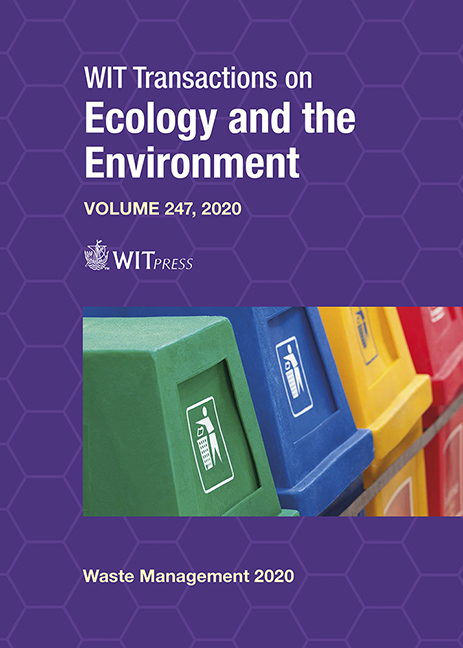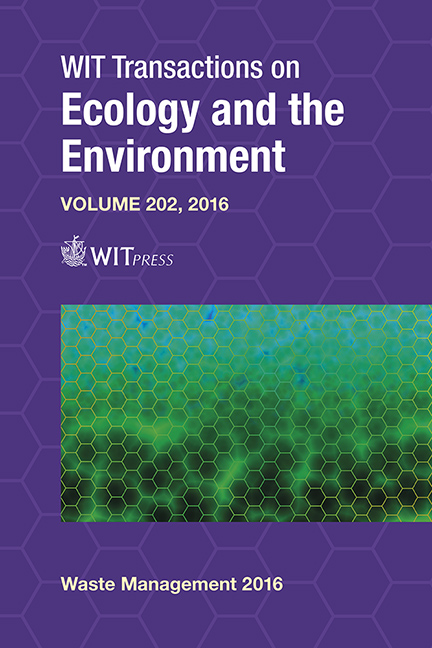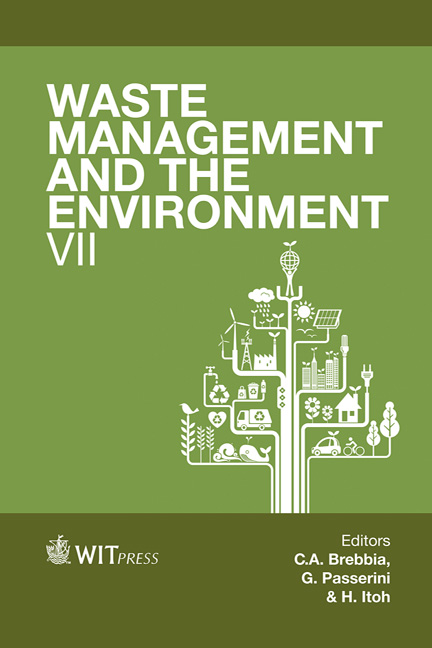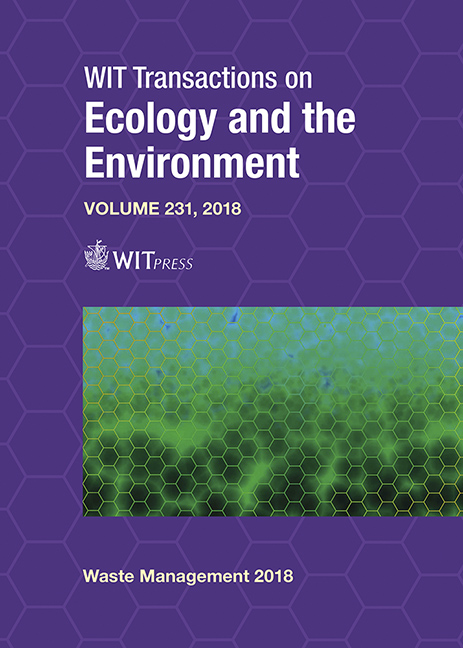Waste Management and the Environment X
Edited By: J. Casares, University of Santiago de Compostela, Spain; H. Itoh, University of Nagoya, Japan and M. Lega, University of Naples Parthenope, Italy
Price
$139.00 (free shipping)
ISBN
978-1-78466-405-3
eISBN
978-1-78466-406-0
Pages
228
Transaction Series
WIT Transactions on Ecology and the Environment
Transaction Volume
247
Published
2020
Format
Hardback
Waste Management is one of the key problems of modern society due to the ever-expanding volume and complexity of discarded domestic and industrial waste.
Society is increasingly aware of the need to establish better practices and safer solutions for waste disposal. This requires further investigation into disposal methods and recycling as well as new technologies to monitor landfills, industrial mining wastes and chemical and nuclear repositories.
This creates a need for more research on current disposal methods such as landfills, incineration, chemical and effluent treatment, as well as recycling, clean technologies, waste monitoring, public and corporate awareness and general education.
Unfortunately, many of the policies adopted in the past were aimed at short term solutions without due regard to the long term implications on health and the environment, leading in many cases to the need to take difficult and expensive remedial action.
The desired direction of Waste Management is towards sustainable strategies. The approach that has emerged as the most promising has been called 4Rs, where reduction, reuse, recycling and recovery are seen as the best actions. This largely decreases the volume of waste that needs final disposal. Recovery refers to the establishment of two new classifications, those of Secondary Raw Materials (SRM) and of Refuse Derived Fuel (RDF). They both relate to useful products obtained from waste and make a shift from the mere recycle or reuse – mostly seen as a way to reduce dumping – to the valuable employment of such matter within the production cycle.
Another aspect of this revolution is happening subtly and gradually by people buying waste; particularly eWaste and some types of plastic, the so-called technical waste. This is happening due to the strong demand and high price of certain new materials and the possibility of sorting out waste in developing regions of the world. As a result, a market in Secondary Raw Materials (SRM) has developed.
Covering various areas under the topic of Waste management, this volume contains a selection of papers presented at the 10th International Conference on Waste Management and the Environment.







